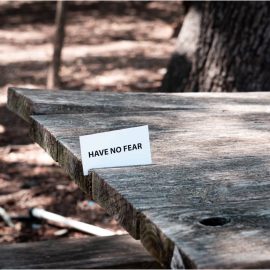

This article is an excerpt from the Shortform book guide to "Good Inside" by Becky Kennedy. Shortform has the world's best summaries and analyses of books you should be reading.
Like this article? Sign up for a free trial here.
What do you believe to be true about yourself as a parent? How well do you understand what’s behind your child’s behavior?
Clinical psychologist Becky Kennedy’s Good Inside is a parenting manual to help you make changes in your child’s behavior while building a positive relationship with them. Dr. Becky’s parenting approach stems from one basic principle: You and your child are good people, even if you’re not doing well right now.
Let’s look at how this principle informs Dr. Becky’s approach to parenting and examine the theoretical basis for her philosophy.
Dr. Becky’s Parenting Principle
Dr. Becky’s parenting principle is an unshakeable belief that you and your child are good people at your core—you’re “good inside,” even when you’re struggling. If your child’s behavior is challenging or if you don’t like how you’re responding to her behavior, it doesn’t mean your child or you are bad. It means that you’re struggling and need help.
(Shortform note: Dr. Becky’s belief that you and your child are good people even when you’re struggling goes against scarcity culture, which Brené Brown says is the belief that we’re never good enough. In The Power of Vulnerability, Brown’s prescription for overcoming this mindset is embracing vulnerability and accepting that you’re worthy of love and belonging.)
Understanding that you and your child are both good even when you’re struggling allows you to do the following two things:
1) See challenging behavior as a clue to investigate rather than a problem to control. When you focus on controlling behavior instead of understanding it, you don’t get to the root of the problem. Instead, find out what’s triggering the behavior and work on that underlying cause.
(Shortform note: Dr. Becky’s approach to behavior differs from that of other parenting experts, such as Thomas W. Phelan, author of 1-2-3 Magic. He sees children’s unwanted behavior as something to change, not investigate. His core strategy—giving kids three strikes before putting them on a five-minute break—shuts down bad behavior without engaging with underlying causes. Although it’s efficient, Dr. Becky would likely argue that it doesn’t foster long-term behavior change.)
2) Lead your child with confidence, and have them follow. As Dr. Becky explains, when you believe your child is essentially good, you also believe that with your guidance, she’ll eventually overcome the underlying challenge and the behavior you’re seeing will improve. Children notice your trust and feel safer to try the strategies you offer to solve their problems, improving their behavior as a result.
(Shortform note: The notion that parents are leaders might be surprising, but The Leadership Challenge authors James M. Kouzes and Barry Z. Posner explain that leadership comes from fostering and maintaining strong relationships, not from a fancy title or organizational authority. Further, by describing parents as leaders, Dr. Becky argues that you can improve your child’s behavior and bring out their best. By analogy, Kouzes and Posner explain that, in a professional setting, effective leaders prompt employees to achieve more than those employees thought they were capable of achieving. In fact, studies show that great leaders bring out more than three times the talent and motivation from their teams as do lesser leaders.)
According to Dr. Becky, there are two main reasons why applying these principles is hard. First, humans have a negativity bias: We’re evolutionarily wired to pay more attention to negatives than positives so that we can quickly identify and act on problems.
(Shortform note: In The Happiness Hypothesis, Jonathan Haidt explains why we’re strongly wired to dislike and fear bad things more than we like good things. This is because, for our hominid ancestors, it was far more dangerous to misjudge a risk (like eating a plant that turned out to be poisonous) than it was to miss an opportunity (like failing to spot a new source of water).)
Second, it’s likely that you were raised by parents who didn’t separate your behavior from your core identity. When you did something wrong, you were a bad (or lazy, spoiled, or rude) kid. Being bad meant you were at risk of not being loved. In an effort to get rid of that badness, you pushed down the emotions that triggered the behavior instead of working through them. Now, when you see your child behaving in a challenging way, it triggers your body’s memory of your childhood and you instinctively try to push down their emotions because you fear for their safety. Dr. Becky believes that breaking this cycle is possible with her approach to parenting.
(Shortform note: Dr. Becky frames her approach to parenting as a tool for cycle-breaking, the practice of intentionally interrupting behavioral patterns that have repeated themselves over generations. But changing how you view your child’s behavior isn’t enough to become a cycle-breaker. You first need to identify and investigate the patterns you want to interrupt, heal the psychological wounds you have from those patterns, and then begin incorporating new ways of behaving. That final step is where you would apply Dr. Becky’s strategies, although learning about them can also help you identify any existing patterns you might want to interrupt.)
The Psychological Basis of Dr. Becky’s Approach
Dr. Becky’s parenting approach has a theoretical basis in modern psychology, with attachment theory and the Internal Family Systems model.
Attachment theory explains that babies are driven to seek a strong connection with caregivers who keep them safe and care for them. Children instinctively protect their attachment to their caregivers, adjusting their behavior to the cues they get from their parents. If parents are responsive to their children’s needs and feelings, children learn that they have a secure base from which to go explore the world. On the other hand, if parents shut them down, children develop self-loathing or shame as a result of having feelings that their caregivers respond negatively to. This leads to becoming adults who are constantly trying to please others or who accept poor treatment as normal.
Dr. Becky’s parenting approach also borrows from the Internal Family Systems (IFS) model, which views a person as made up of different parts, each activated by different contexts, and resulting in contradictory feelings and experiences. Having a strong sense of self requires knowing that you’re multifaceted and being able to flow through different feelings and experiences.
IFS is helpful for teaching children that their emotions and feelings are part of them, but not their whole selves. For example, your child might be assertive and expressive at home, but quiet and unsure at school. Similarly, she might feel overwhelmed when she gets called on at school, but impatient when she doesn’t get attention at home. By getting to know herself and understanding the different feelings she can have, she will be able to tolerate each of them better and not let one single way of being or feeling take over her whole self.
Brought together, attachment theory and IFS show that children are made up of different parts and that they’ll unconsciously decide which parts are worthy or not according to how secure they feel expressing them. A child who’s naturally shy in social situations, for example, but who constantly gets shamed by their parents for this, might learn to fake extraversion or avoid social settings altogether. The first option isn’t healthy because it forces the child to shut down the cues they get from their mind and body, and the second option prevents them from fully experiencing life.

———End of Preview———
Like what you just read? Read the rest of the world's best book summary and analysis of Becky Kennedy's "Good Inside" at Shortform.
Here's what you'll find in our full Good Inside summary:
- A parenting manual to help you build a positive relationship with your child
- Why time-outs, rewards, and serious conversations don't "fix" kids
- Strategies to deal with ten common parenting challenges






